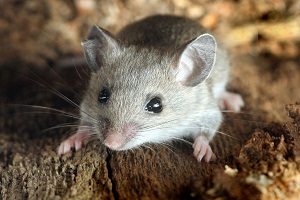Seattle Rat Exterminator and Mice Exterminator Services
Croach® provides integrated pest management (IPM) rodent control services. During your free onsite consultation, we will perform a thorough inspection, to include your attic and crawl space insulation, and make specific recommendations.
The Croach® approach to rodent control involves a three-step method to eliminate and control mice and rats.
- Exterior Bait Stations with top-end bait entices rodents with food and sends them looking for water (usually away from the property). We use only certified one-kill bait which prevents harm to rodent predators and scavengers (like your dogs and cats).
- Properly Sized Traps placed out of sight and out of the way. We disturb mice and rats, not your life.
- Exclusion is an essential component of rat and mouse control that seals up entry points and denies easy access for rodents.
In addition, your Croach® rodent control service comes with free re-treats if traps need to be reset, along with bait refills as necessary. Rat and mouse carcasses are removed during regular visits and complimentary re-treats.
Common Seattle Rats and Mice
 Deer Mice - Deer mice nest in small, dark areas (holes in trees or fence posts, animal burrows, shoe boxes, drawers, and indoor clutter). Their shedding skin, feces, and other remnants can contaminate the air you breathe with a virus called Hantavirus. They also spread other illnesses and disease.
Deer Mice - Deer mice nest in small, dark areas (holes in trees or fence posts, animal burrows, shoe boxes, drawers, and indoor clutter). Their shedding skin, feces, and other remnants can contaminate the air you breathe with a virus called Hantavirus. They also spread other illnesses and disease.
House Mice - These small mice need people to provide food and shelter to survive. House mice are known to infect food with tapeworms and Salmonella.
Roof Rats - Roof rats are large and can reach up to 18 inches in length. They are powerful climbers and jumpers that prefer high places. Roof rats are especially dangerous to insulation, make nests, leave behind urine and feces, and are known disease carriers.
Wharf Rats - Also known as Norway rats or Brown rats, they nest in dark out of the way places. They love to chew and have powerful jaws that can gnaw through lead pipes.
Why Does Seattle Have So Many Rats and Mice?
Old World rats and mice (not native to Washington) made their way to Seattle on ships and spread throughout the area on foot and via trains and trucks. Then they settled in populated regions of humans and industry to enjoy a steady supply of food and shelter.
Our mild Seattle climate lacks long bouts of freezing temperatures that help reduce the rodent populace. Equally important, new construction and expanding neighborhoods are attracting more rats and mice to make their home in the area.
Consequently, these are the reasons the Seattle-Tacoma area has twice the average rodent, rat, and mouse population.
Use Caution and Be Informed About the Importance of Rodent Control
Rats and mice consume your food (contaminating it in the process), shred fibrous material (insulation, paper, cardboard), and damage electrical and utility components (pipes and wires). Their presence increases the risk of fire and property damage.
They also spread illness and disease to humans such as bubonic plague, salmonella (food poisoning), leptospirosis, and tularemia. Accidental or unprotected contact with mouse and rat urine, feces, saliva, air-borne particles, trails, carcasses, bites or scratches can result in serious, sometimes life-threatening conditions.
Seattle Rodent Control and Rat Extermination
Rats and mice are mostly nocturnal, cautious, and sneaky. They prefer to stay away from people in hidden areas like attics and crawl spaces. Signs of an infestation include:
- Chew or scratch marks on paper, cardboard, insulation, wood, plastic, carpeting, cables or pipes
- Mouse or rat feces
- Unexplained new or expanded holes
- Nests in small, dark places like drawers or storage bins
- Trails of dry goods and sweets or holes in their containers
- Flattened plants or grass, paths from regular rat passage outdoors
- Oil smears or stains on walls or wood, trails from mouse or rat passage indoors
- A smell like musky ammonia, from urine, often long before sighting
- Scratching or scurrying in walls and under floors, especially at night
- Seeing rats or mice. With how often and well they hide, this is a sign of a rat infestation
Seattle Rodent Prevention and Aftercare
After our licensed professional rat exterminator or mice exterminator has removed the nuisance rodents, follow these steps to help prevent future rodent infestation and new intrusions.
- Eliminate excess plant matter, including branches that touch your house, and debris
- Store food in lidded containers (glass, metal, or heavy plastic)
- Move storage containers off the floor and away from the wall, replace cardboard with metal or plastic
- Clean the home regularly and thoroughly
- Have entry points sealed and insulation repaired or replaced
- Don’t feed the birds during initial treatments, if you must afterward use no husk feed
- Sign up for regular rodent treatments
- Refer your neighbors because the more people in your neighborhood receiving rat control, the fewer places rodents can hide and return from
Trusted Pest Control Near Seattle, WA
Croach® Pest Control proudly serves residents throughout Seattle, including Anacortes, Arlington, Auburn, Bellevue, Bellingham, Bonney Lake, Bothell, Buckley, Burlington, Camano Island, Everett, Federal Way, Ferndale, Issaquah, Kent, Kirkland, La Conner, Lakewood, Lynden, Lynnwood, Marysville, Monroe, Mount Vernon, Mukilteo, Oak Harbor, Olympia, Puyallup, Redmond, Renton, Sedro-Woolley, Snohomish, Stanwood, Sumner, and Tacoma.
Licensed, Bonded, Insured
WA Pest Control License #99029
WA Contractor Lic #PESTFF*894K4




